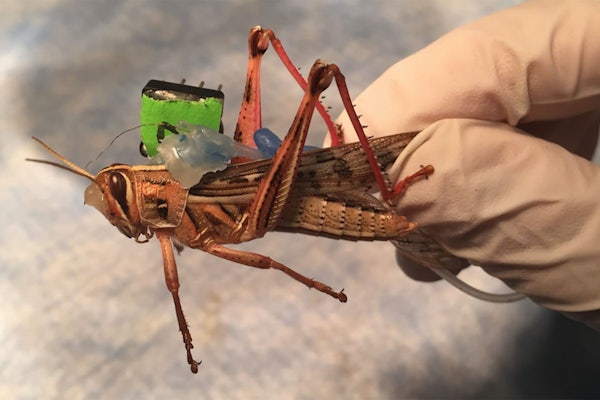Grant funds research pushing limits of cyborg insects
Raman's research will determine how sensitive locusts’ noses are when it comes to explosives

The Office of Naval Research has awarded Barani Raman, professor of biomedical engineering at the McKelvey School of Engineering at Washington University in St. Louis, an $851,320 grant for research to determine just how sensitive locusts’ noses are when it comes to explosives — and how well researchers can interpret what the insects are sensing.
The research — which includes Srikanth Singamaneni, the Lilyan & E. Lisle Hughes Professor of Mechanical Engineering & Materials Science, and Shantanu Chakrabartty, the Clifford W. Murphy Professor of Electrical & Systems Engineering — will be partially conducted on campus and partially at a naval facility.
For the project, Navy technology that emits discrete amounts of vapor will be used to independently benchmark the abilities of these cyborg insects. Researchers will then use smaller and smaller amounts of vapor, pushing the limit of the locusts’ detection abilities — and of researchers to understand what’s going on in the bugs’ brains.
Click on the topics below for more stories in those areas
- Research
- Electrical & Systems Engineering
- Biomedical Engineering
- Mechanical Engineering & Materials Science






